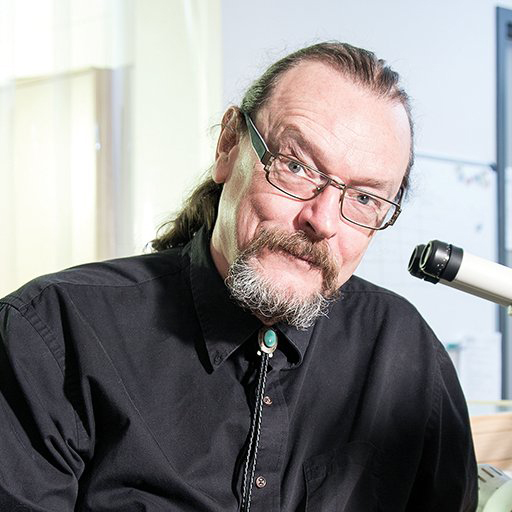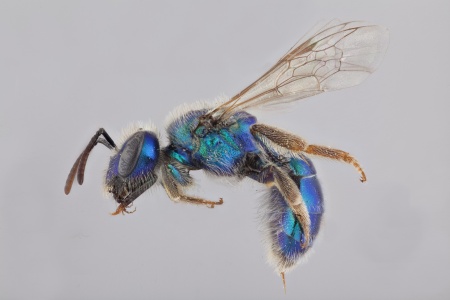
One of the world’s most renowned bee experts, Distinguished Research Professor Laurence Packer, has released a comprehensive guide to the world’s bees.

Bees of the World, published by Princeton University Press, is a 240-page celebration of the diverse types of bees living across the globe. The book features more than 100 genera of bees, accompanied by detailed descriptions of their anatomy, behaviours, life cycle, habitats, nest structure, social organization and more.
Beautiful photos compliment the text, including rare shots of bees in their natural environments foraging, nesting and raising their young. It highlights what Packer has always loved about the small creatures. “Their beauty is the main thing. That’s what got me interested in them in the first place,” Packer says.
When he was approached with the idea for the book, Packer agreed to write it because of the growing public awareness of bees’ importance to our ecosystems, but also awareness of the wide range of types of bees that call Earth home. “When I first started doing this work 40 years ago, when you talked about bees, people wouldn’t think of anything except honey bees,” says Packer. “Now, the proportion of people that understand that bees aren’t just honey bees is reaching critical mass.”

There are few people in the world as well suited as Packer to write a comprehensive guide like Bees of the World. Since he began collecting bees over 45 years ago, his collection at York has grown to represent more than 90 per cent of the world’s known bee genera, including specimens from more than 100 countries. He has become an international leader in bee taxonomy and systematics, biogeography, biodiversity, conservation biology and behaviour.
Packer also spearheads the Bee Barcode of Life project, a major international effort to develop genetic barcodes for all of the bees on Earth and created the first online image bank of the bee genera of the world.
He has authored over 160 research papers, and his bestselling book, Keeping the bees: why all bees are at risk and what we can do to save them, won the prestigious Canadian Science Writers’ Association General Audience Book Award, and was a finalist for the Rachael Carson Award of the Society of Environmental Journalists, as well as the Lane-Anderson Science Book Prize. In 2019, he won the a prestigious Nature Inspiration Award and in 2016, York gave him the title Distinguished Research Professor, which recognized his outstanding, sustained scholarly contributions to the University through research.
